😗
The advancement by Lawrence Livermore National Laboratory researchers will be built on to further develop fusion energy research.

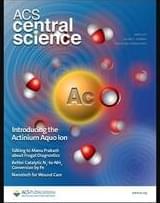
Year 2017 face_with_colon_three
The chronic nature and associated complications of nonhealing wounds have led to the emergence of nanotechnology-based therapies that aim at facilitating the healing process and ultimately repairing the injured tissue. A number of engineered nanotechnologies have been proposed demonstrating unique properties and multiple functions that address specific problems associated with wound repair mechanisms. In this outlook, we highlight the most recently developed nanotechnology-based therapeutic agents and assess the viability and efficacy of each treatment, with emphasis on chronic cutaneous wounds. Herein we explore the unmet needs and future directions of current technologies, while discussing promising strategies that can advance the wound-healing field.
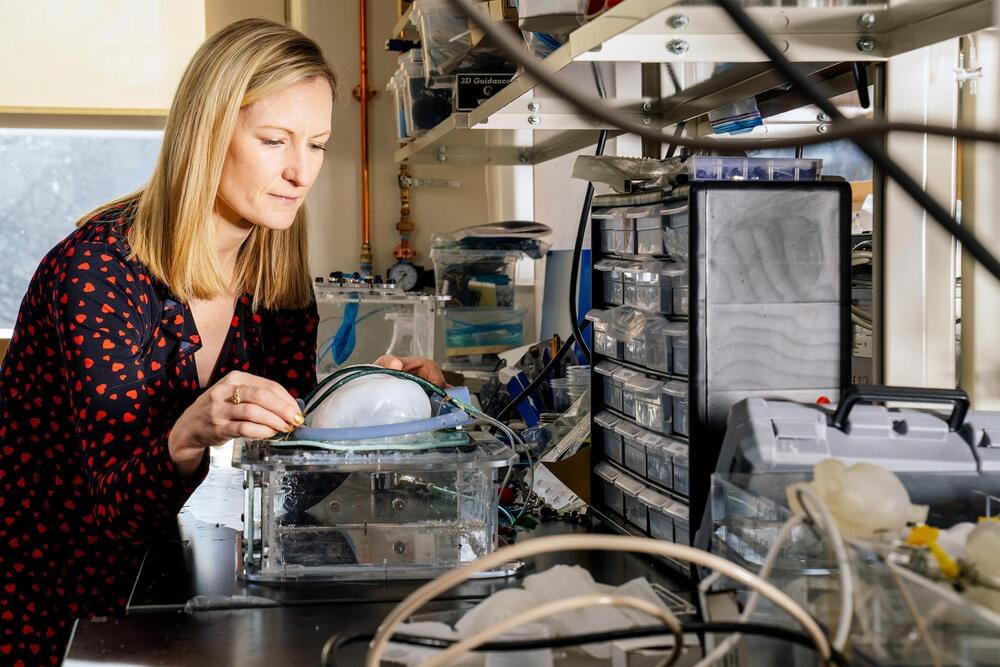
😗
For many of us, the act of breathing comes naturally. Behind the scenes, our diaphragm — the dome-shaped muscle that lies just beneath the ribcage — works like a slow and steady trampoline, pushing down to create a vacuum for the lungs to expand and draw air in, then relaxing as air is pushed out. In this way, the diaphragm automatically controls our lung capacity, and is the major muscle responsible for our ability to breathe.
But when the diaphragm’s function is compromised, the breathing instinct becomes a laborious task. Chronic diaphragm dysfunction can occur in people with ALS, muscular dystrophy, and other neuromuscular diseases, as well as patients with paralysis, and damage to the phrenic nerve, which stimulates the diaphragm to contract.
A new proof-of-concept design by MIT engineers aims to one day boost the diaphragm’s life-sustaining function and improve lung capacity for people with diaphragm dysfunction.
Two doctors at the Max Super Specialty Hospital in India has documented the filarial dance of scrotal worms on video. In the video, the undulations of live worms residing in a male patient’s scrotum can be seen.
The case study began as a 26-year-old man came to the hospital complaining of testicular pain. He told them it was associated with swelling of his scrotum and had been bothering him for approximately one month. He also had a slight fever. Suspecting some type of parasite, the doctors first examined the man using ultrasound after which they extracted some of the fluid that had built up in the scrotum for inspection by lab techs. They also took blood samples for the same purpose.
The lab tests showed a large number of absolute eosinophil in the blood stream and the ultrasound showed anechoic tubular channels along with an absence of color flow. Additionally, echogenic, linear structures could be seen moving around inside one of the channels—an activity the doctors described as a filarial dance.
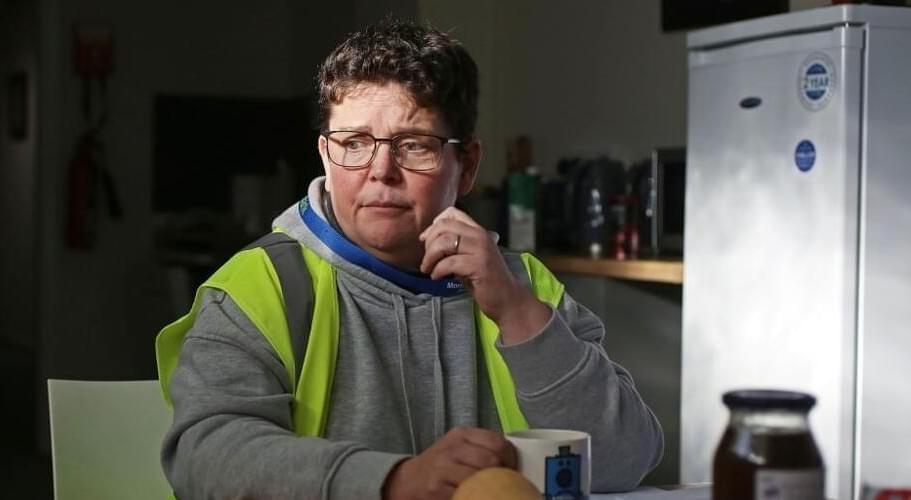


WASHINGTON — The United Nations General Assembly approved a resolution calling for a halt to one type of anti-satellite (ASAT) testing, a largely symbolic move intended to support broader space sustainability initiatives.
The resolution, introduced by the United States and several other nations, was approved by the U.N. General Assembly Dec. 7 among dozens of other resolutions on arms control and related topics with little discussion or debate. A total of 155 nations voted in favor of the resolution, with 9 voting against it and 9 others abstaining.
The resolution calls on countries to halt destructive testing of direct-ascent ASAT weapons, citing concern that such creates large amounts of debris that threaten the safety of other satellites. An example is the November 2021 ASAT test by Russia that destroyed the Cosmos 1,408 satellite, creating nearly 1,800 tracked pieces of debris and likely many more objects too small to be tracked. About a third of the tracked debris from that test was still in orbit nearly a year later.
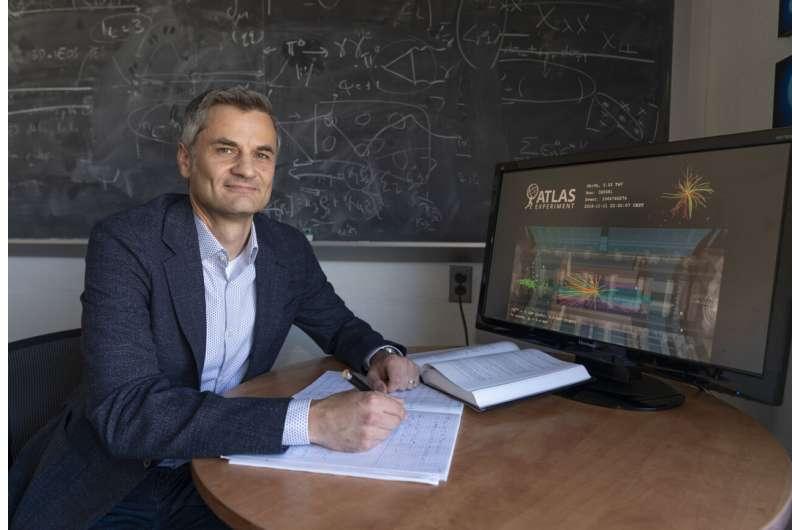
A new computational analysis by theorists at the U.S. Department of Energy’s Brookhaven National Laboratory and Wayne State University supports the idea that photons (a.k.a. particles of light) colliding with heavy ions can create a fluid of “strongly interacting” particles. In a paper just published in Physical Review Letters, they show that calculations describing such a system match up with data collected by the ATLAS detector at Europe’s Large Hadron Collider (LHC).
As the paper explains, the calculations are based on the hydrodynamic particle flow seen in head-on collisions of various types of ions at both the LHC and the Relativistic Heavy Ion Collider (RHIC), a DOE Office of Science user facility for nuclear physics research at Brookhaven Lab. With only modest changes, these calculations also describe flow patterns seen in near-miss collisions, where photons that form a cloud around the speeding ions collide with the ions in the opposite beam.
“The upshot is that using the same framework we use to describe lead-lead and proton-lead collisions, we can describe the data of these ultra-peripheral collisions where we have a photon colliding with a lead nucleus,” said Brookhaven Lab theorist Bjoern Schenke, a co-author of the paper. “That tells you there’s a possibility that in these photon-ion collisions, we create a small dense strongly interacting medium that is well described by hydrodynamics—just like in the larger systems.”
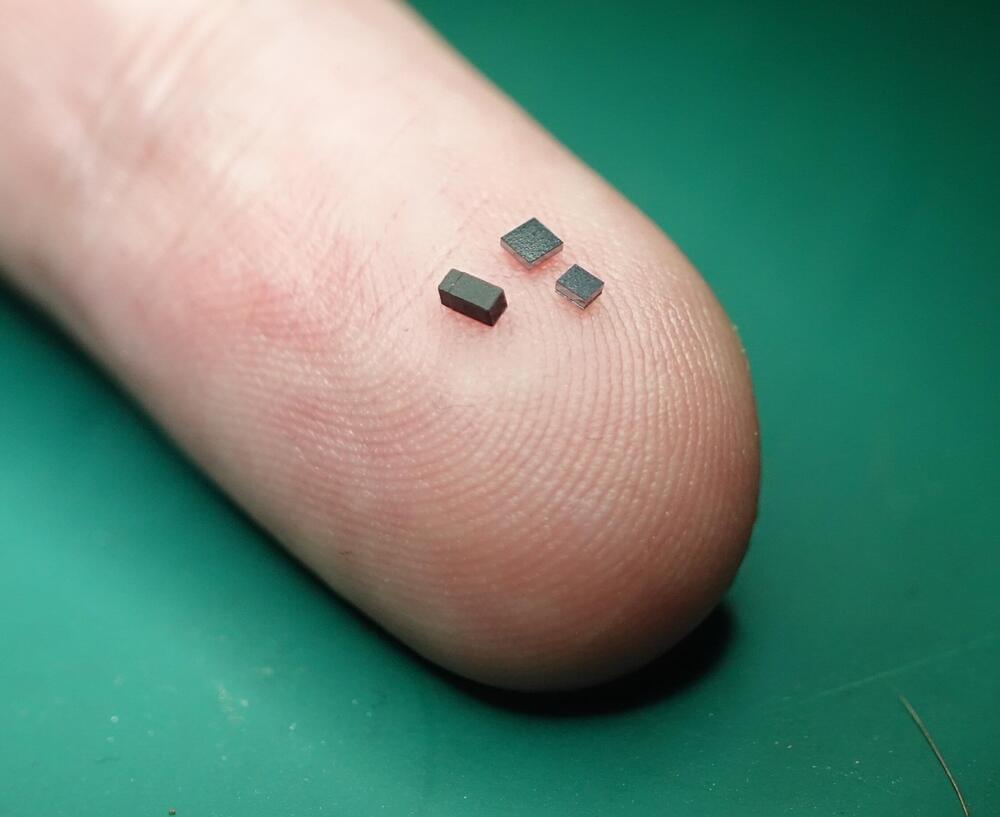
Light-weight and flying robots the size of small insects could have highly valuable real-world applications, for instance supporting search & rescue missions, inspections of hazardous sites, and even space exploration.
Despite their potential, the realization of these robots has so far proved difficult, particularly due to technical issues encountered when trying to stabilize their flight and artificially replicate the innate hovering capabilities of insects.
Researchers at University of Washington have recently developed a flight control and wind sensing system that could help to tackle this challenging robotics problem, finally enabling the stable flight of robots even as small as a gnat. This system, introduced in Science Robotics, is based on the use of accelerometers, a sensor that can measure the acceleration of any moving device, object or body.
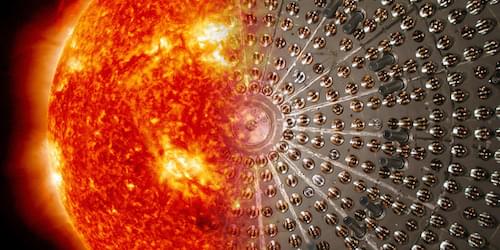
Measurements of solar neutrinos proved that our star is powered by nuclear reactions and has brought to light many other details about the Sun’s inner workings. They also led to the discovery of neutrino oscillations—a phenomenon that is difficult to reconcile with established theories. Current neutrino research mostly relies on neutrinos generated on Earth by reactors and accelerators. But some physicists argue that there is still a lot to be done with neutrinos generated in the Sun. A new generation of solar-neutrino experiments may help in solving outstanding questions about both neutrinos and solar physics, these scientists say.
The study of solar neutrinos began in the late 1960s. Using a detector filled with dry-cleaning fluid and placed in South Dakota’s Homestake gold mine, physicist Raymond Davis and his colleagues observed the first neutrino signal from the Sun. They were surprised, however, to find that the number of neutrinos was one third of what models predicted—a mystery that led to a “neutrino gold rush,” with many new experiments staking claims to different energy and length scales related to the neutrino behavior. Eventually, physicists explained the missing neutrinos as resulting from oscillations between neutrino flavors (see Nobel Focus: Neutrino and X-ray Vision). These oscillations implied that neutrinos have mass, in tension with the standard model of particle physics.
The study of neutrino oscillations continues with efforts to pin down the neutrino masses and mixing parameters that determine the oscillating behavior. The main target, however, is no longer solar neutrinos. “The majority of the community, by a large margin, is focused on accelerator neutrinos,” says Michael Smy from the University of California, Irvine. The reason for this shift, he says, is that an accelerator experiment can explore higher-energy neutrinos and control the source-detector distance over which oscillations may occur. Researchers can also switch the accelerator on and off, which helps remove certain backgrounds.